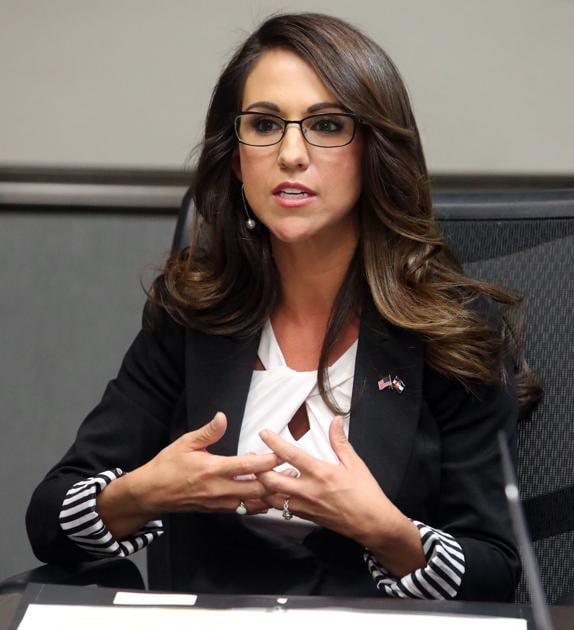
The amount of money the federal government pays state and local governments through payments in lieu of taxes is not enough, U.S. Rep. Lauren Boebert says.
The Silt Republican has introduced a bill calling on the Department of the Interior to come up with a better formula in determining PILT payments, something that is more realistic in terms of the real market value of the land the payments are based on.
“This act will help counties with significant amounts of non-taxable federal lands,” Boebert said in a press release. “While important to rural communities in Colorado’s 3rd District, PILT payments are a fraction of the dollars counties would receive if they were able to put these lands to productive private use.”
The PILT program, first started in 1977, pays state and local governments a set amount based on population levels in their jurisdictions and the amount of acres of federally controlled land within their boundaries. The federal government has made about $9.7 billion in PILT payments since the program began.
Mesa County, for example, has more than 1.5 million acres of federal land, and received $3.7 million in PILT payments last year. That means it got about $2.38 per acre. The national average is $2.71, according to Boebert’s office, which cited the National Association of Counties.
Boebert doesn’t suggest what that per-acre amount should be, but says it’s not enough. She goes on, however, to say the bill “includes an offset to ensure the modeling tool, study, and report do not increase federal spending.”
Since taking office in January, Boebert has repeatedly voted against bills that include federal spending even if they had wide bipartisan support, saying she doesn’t want to add to the national debt. Most recently she voted against measures that help fund a bone marrow donation program and consumer protections for seniors and Native Americans citing that reason.
She said that local governments could earn more revenue “if valued-based taxation or economic development occurred on these federal lands,” but stops short of suggesting they should be sold off.
“The federal government either needs to give the people back our land or compensate us appropriately for the tax base lost to federal lands,” she said.
Federal lands do generate additional funds to local governments from private interests in the form of Federal Mineral Lease payments, which have dwindled in recent years partly because of low commodity prices for oil and natural gas.
PILT payments are not the same as FML payments made to states and local governments. Those payments are based on royalties from private leases on public lands from such activities as drilling, mining, grazing and logging.
While those FML payments can be reduced because of corresponding PILT payments, that’s not the case in Mesa and Garfield Counties, which created their own FML districts to avoid seeing those royalty payments reduced.
U.S. Sen. Mike Lee, R-Utah, introduced a nearly identical bill in the U.S. Senate last month. It has not yet advanced.
"payment" - Google News
April 23, 2021 at 01:15PM
https://ift.tt/3sEKnPW
Boebert calls for new PILT payment formula - The Grand Junction Daily Sentinel
"payment" - Google News
https://ift.tt/3bV4HFe
https://ift.tt/2VYfp89
Bagikan Berita Ini














0 Response to "Boebert calls for new PILT payment formula - The Grand Junction Daily Sentinel"
Post a Comment